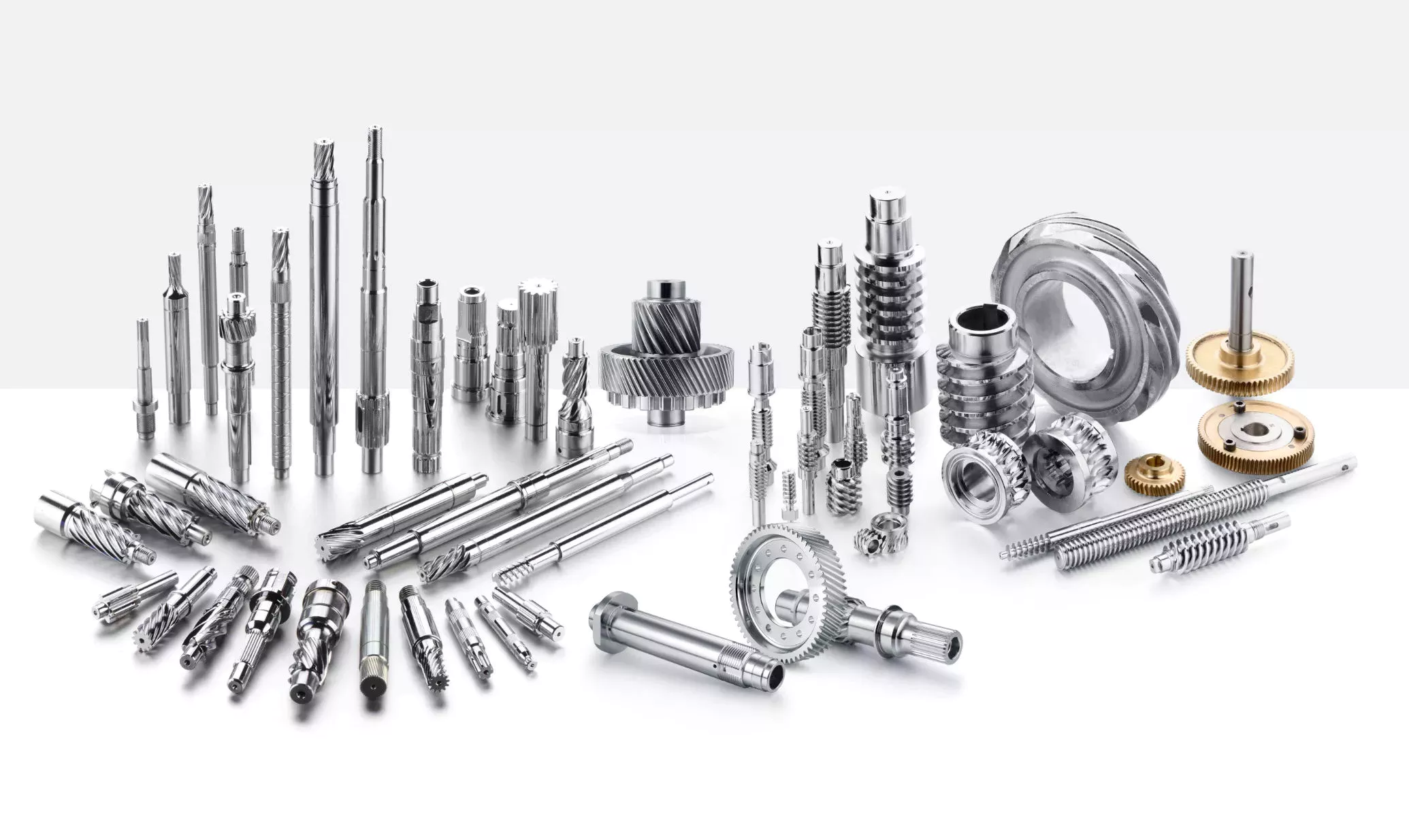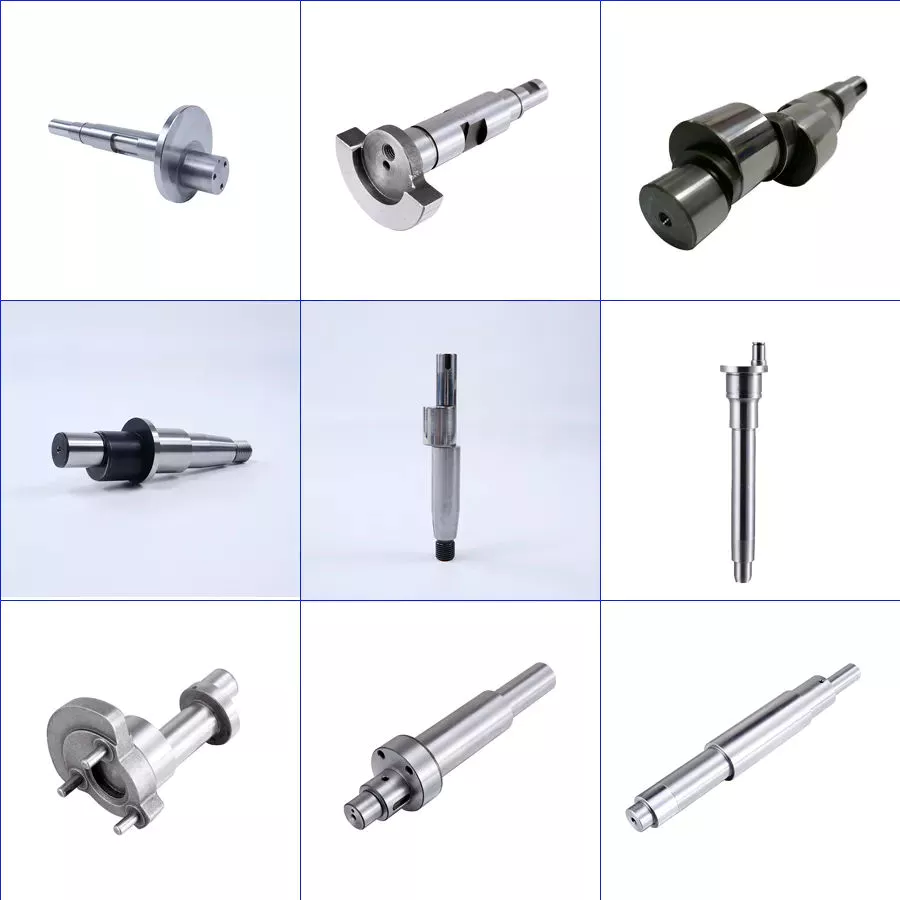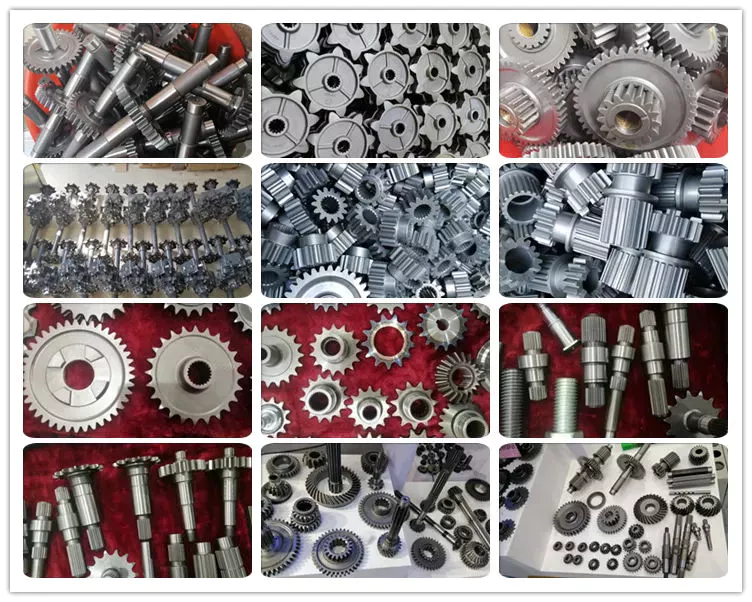Product Description
Down The Hole CIR90 Low air pressure DTH hammer rock drilling bits
Product Description
KINGDRILLING hammer bits are used with Down-the-hole hammers for drilling holes through a wide range of rocks types. In conjunction with DTH hammers, drill hammer bits are designed with a spline drive for rotating the bit in the ground. Drill bits are available in different sizes and different styles so they can drill a wide range of hole sizes. Our variety of Down the Hole (DTH) bits is manufactured using high quality materials to provide you with a fine balance between penetration capability and bit life.
Shank types:CIR76, CIR90, CIR110, CIR130, CIR150,CIR170,CIR200
DTH hammer bits hole diameter: 2″, 3”, 4”, 5”, 6”, 8′, 10″, 12″(85mm-305mm).
Technical Date
| Model | Bit Dia. (mm) |
Connector Specification | NO.Buttons (PCS) |
NO.Air Holes(PCS) | Weight (KG) |
| MD-MC50 | 50 | 29×4 | 5 | 1 | 1.0 |
| MD-MC65 | 65 | 37×4 | 6 | 1 | 1.4 |
| MD-MC76 | 76 | 44×4 | 8 | 2 | 2.2 |
| MD-MC80 | 80 | 50×6 | 8 | 2 | 3.2 |
| MD-MC90 | 90 | 54×6 | 10-11 | 2-3 | 3.9 |
| MD-MC100 | 100 | 54×6 | 10-11 | 2-3 | 4.1 |
| MD-MC110 | 110 | 54×6/60×4/65×6 | 13 | 2-3 | 6.0 |
| MD-MC120 | 120 | 54×6/60×4/65×6 | 12-13 | 2-3 | 6.2 |
| MD-MC130 | 130 | 54×6/60×4/65×6 | 15 | 3 | 7.2 |
| MD-MC140 | 140 | 60×4/60×5 | 15 | 3 | 7.9 |
| MD-MC145 | 145 | 60×4/60×5 | 16 | 3 | 8.2 |
| MD-MC150 | 150 | 60×4/65×6/90×6 | 16/20 | 3 | 8.6-19.8 |
| MD-MC160 | 160 | 65×6/90×6 | 20/21 | 3 | 19.3 |
| MD-MC170 | 170 | 65×6/90×6 | 20 | 3 | 19.8 |
| MD-MC175 | 175 | 65×6/90×6 | 20/21 | 3 | 20.0 |
| MD-MC180 | 180 | 65×6/90×6 | 20 | 3 | 21.6 |
| MD-MC200 | 200 | 90×6 | 20 | 3 | 24.0 |
How to order:
Shank Type + Head Diameter + Face Design + Button Shape
How to choose the buttons:
1. Domed/round buttons
Domes/round buttons are usually used as gauge buttons of DTH bits, suitable for very CZPT and very hard formations.
2. Parabolic buttons
Parabolic buttons are usually used as gauge buttons and front buttons of DTH Bits, suitable for medium CZPT and hard formations.
3. Ballistic button
Ballistic button are usually used as front buttons of DTH bits, suitable for medium CZPT and medium hard formations. They can also be used as gauge buttons if the rock is soft.
FAQ:
1. How to order the products?
A: Please send the inquiry with detail item description or with Model number.
2. How about the common packing?
A: If there is no special packing demand, we will take it as our normal packing. First in small carton, and then put in the bigger carton together to make sure goods completed.
3. Can I expect a quality products?
A: Yes. mature production technology ensuring the quality satisfy international request.
4. What is the materials?
Steel is 42CrMo, Alloy is from KD10BH from ZCCCT
5. Product feature
Kingdrilling DTH tools are forged by advanced electron-hydraulic forging hammer, and harness process is managed by multipurpose CZPT heat treatment.
6. How to choose the suitable head face of the DTH drill bit?
a. Concave:
Suitable for all kinds of formation, especially for deep well drilling, perpendicularity of the hole is wonderful.
b. Convex:
Suitable for the formation of moderate hardness stratum, drilling efficiency is good, borehole perpendicularity is moderate.
c. Flat:
Suitable for special hard formation stratum, especially for fracture, crack spacing and complex formation drilling effect is very good, has the good perpendicularity of the borehole.
Our Advantages as below:
- High quality steels materials. Steel is from CZPT and Tungsten carbide are YK05, or T6 from Element Six in Germany
- Kingdrilling DTH tools are forged by advanced electron-hydraulic forging hammer.
- Advanced heat-treatment equipment: multipurpose CZPT heat treatment.
- Completed moulding (tooling ) departments with many molds available.
- Professional R&D team,completed quality system.
- Strict Quality-Check Systems.
Product Application:
About our Company
Kingdrilling Machinery Co. , Ltd is established in 2005 years. Located in HangZhou East Lake High-tech Development Zone, is 1 of the most important manufacturers specialized in researching and producing Casing drilling system, DTH hammer, DTH bit, thread DTH bits, taper DTH bits, coupling sleeve, Anchor, Shank adapter, coal picks and so on.
Relying on the university resources and talent advantages in Optical Valley region, combining with multiple laboratories in universities, we focused on developing the newest products system.
Transport:
Package and Delivery:
Packed by Carton or Wooden cases.
Delivery:
- Goods in stock can be delivered within 5 days.
- DTH Bits production time is about 15 days.
- DTH Hammer product time is about 30 days.
More products:
The Functions of Splined Shaft Bearings
Splined shafts are the most common types of bearings for machine tools. They are made of a wide variety of materials, including metals and non-metals such as Delrin and nylon. They are often fabricated to reduce deflection. The tooth profile will become deformed with time, as the shaft is used over a long period of time. Splined shafts are available in a huge range of materials and lengths.
Functions
Splined shafts are used in a variety of applications and industries. They are an effective anti-rotational device, as well as a reliable means of transmitting torque. Other types of shafts are available, including key shafts, but splines are the most convenient for transmitting torque. The following article discusses the functions of splines and why they are a superior choice. Listed below are a few examples of applications and industries in which splines are used.
Splined shafts can be of several styles, depending on the application and mechanical system in question. The differences between splined shaft styles include the design of teeth, overall strength, transfer of rotational concentricity, sliding ability, and misalignment tolerance. Listed below are a few examples of splines, as well as some of their benefits. The difference between these styles is not mutually exclusive; instead, each style has a distinct set of pros and cons.
A splined shaft is a cylindrical shaft with teeth or ridges that correspond to a specific angular position. This allows a shaft to transfer torque while maintaining angular correspondence between tracks. A splined shaft is defined as a cylindrical member with several grooves cut into its circumference. These grooves are equally spaced around the shaft and form a series of projecting keys. These features give the shaft a rounded appearance and allow it to fit perfectly into a grooved cylindrical member.
While the most common applications of splines are for shortening or extending shafts, they can also be used to secure mechanical assemblies. An “involute spline” spline has a groove that is wider than its counterparts. The result is that a splined shaft will resist separation during operation. They are an ideal choice for applications where deflection is an issue.
A spline shaft’s radial torsion load distribution is equally distributed, unless a bevel gear is used. The radial torsion load is evenly distributed and will not exert significant load concentration. If the spline couplings are not aligned correctly, the spline connection can fail quickly, causing significant fretting fatigue and wear. A couple of papers discuss this issue in more detail.
Types
There are many different types of splined shafts. Each type features an evenly spaced helix of grooves on its outer surface. These grooves are either parallel or involute. Their shape allows them to be paired with gears and interchange rotary and linear motion. Splines are often cold-rolled or cut. The latter has increased strength compared to cut spines. These types of shafts are commonly used in applications requiring high strength, accuracy, and smoothness.
Another difference between internal and external splined shafts lies in the manufacturing process. The former is made of wood, while the latter is made of steel or a metal alloy. The process of manufacturing splined shafts involves cutting furrows into the surface of the material. Both processes are expensive and require expert skill. The main advantage of splined shafts is their adaptability to a wide range of applications.
In general, splined shafts are used in machinery where the rotation is transferred to an internal splined member. This member can be a gear or some other rotary device. These types of shafts are often packaged together as a hub assembly. Cleaning and lubricating are essential to the life of these components. If you’re using them on a daily basis, you’ll want to make sure to regularly inspect them.
Crowned splines are usually involute. The teeth of these splines form a spiral pattern. They are used for smaller diameter shafts because they add strength. Involute splines are also used on instrument drives and valve shafts. Serration standards are found in the SAE. Both kinds of splines can also contain a ball bearing for high torque. The difference between the 2 types of splines is the number of teeth on the shaft.
Internal splines have many advantages over external ones. For example, an internal spline shaft can be made using a grinding wheel instead of a CNC machine. It also uses a more accurate and economical process. Furthermore, it allows for a shorter manufacturing cycle, which is essential when splining high-speed machines. In addition, it stabilizes the relative phase between the spline and thread.
Manufacturing methods
There are several methods used to fabricate a splined shaft. Key and splined shafts are constructed from 2 separate parts that are shaped in a synchronized manner to transfer torque uniformly. Hot rolling is 1 method, while cold rolling utilizes low temperatures to form metal. Both methods enhance mechanical properties, surface finishes, and precision. The advantage of cold rolling is its cost-effectiveness.
Cold forming is 1 method, as well as machining and assembling. Cold forming is a unique process that allows the spline to be shaped to the desired shape. The resulting shape provides maximum contact area and torsional strength. Standard splines are available in standard sizes, but custom lengths can also be ordered. CZPT offers various auxiliary equipment, such as mating sleeves and flanged bushings.
Cold forging is another method. This method produces long splined shafts that are used in automobile propellers. After the spline portion is cut out, it is worked on in a hobbing machine. Work hardening enhances the root strength of the splined portion. It can be used for bearings, gears, and other mechanical components. Listed below are the manufacturing methods for splined shafts.
Parallel splines are the simplest of the splined shaft manufacturing methods. Parallel splines are usually welded to shafts, while involute splines are made of metal or non-metals. Splines are available in a wide variety of lengths and materials. The process is usually accompanied by a process called milling. The workpiece rotates to produce the serrated surface.
Splines are internal or external grooves in a splined shaft. They work in combination with keyways to transfer torque. Male and female splines are used in gears. Female and male splines correspond to 1 another to ensure proper angular correspondence. Involute splines have more surface area and thus are stronger than external splines. Moreover, they help the shaft fit into a grooved cylindrical member without misalignment.
A variety of other methods of manufacturing a splined shaft can be used to produce a splined shaft. Spline shafts can be produced using broaching and shaping, 2 precision machining methods. Broaching uses a metal tool with successively larger teeth to remove metal and create ridges and holes in the surface of a material. However, this process is expensive and requires special expertise.
Applications
The splined shaft is a mechanical component with a helix-like shape formed by the equal spacing of grooves in a circular ring. The splines can either have parallel or involute sides. The splines minimize stress concentration in stationary joints and can be used in both rotary and linear motion. In some cases, splines are rolled rather than cut. The latter is more durable than cut splines and is often used in applications requiring high strength, accuracy, and smooth finish.
Splined shafts are commonly made of carbon steel. This alloy steel has a low carbon content, making it easy to work with. Carbon steel is a great choice for splines because it is malleable. Generally, high-quality carbon steel provides a consistent motion. Steel alloys are also available that contain nickel, chromium, copper, and other metals. If you’re unsure of the right material for your application, you can consult a spline chart.
Splines are a versatile mechanical component. They are easy to cut and fit. Splines can be internal or external, with teeth positioned at equal intervals on both sides of the shaft. This allows the shaft to engage with the hub around the entire circumference of the hub. It also increases load capacity by creating a constant multiple-tooth point of contact with the hub. For this reason, they’re used extensively in rotary and linear motion.
Splined shafts are used in a wide variety of industries. CZPT Inc. offers custom and standard splined shafts for a variety of applications. When choosing a splined shaft for a specific application, consider the surrounding mated components, torque requirements, and size requirements. These 3 factors will make it the ideal choice for your rotary equipment. And you’ll be pleased with the end result!
There are many types of splines and their applications are endless. They transfer torque and angular misalignment between parts, and they also enable the axial rotation of assembled components. Therefore, splines are an essential component of machinery and are used in a wide range of applications. This type of shaft can be found in various types of machines, from household appliances to industrial machinery. So, the next time you’re looking for a splined shaft, make sure you look for a splined one.




